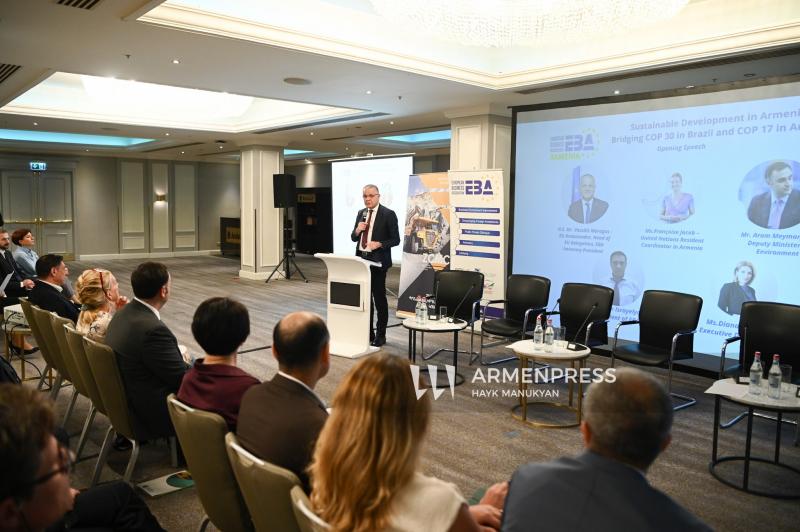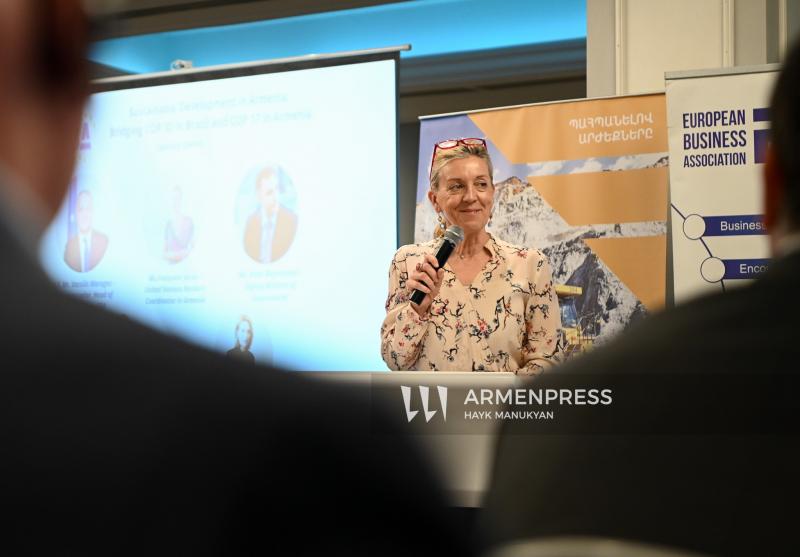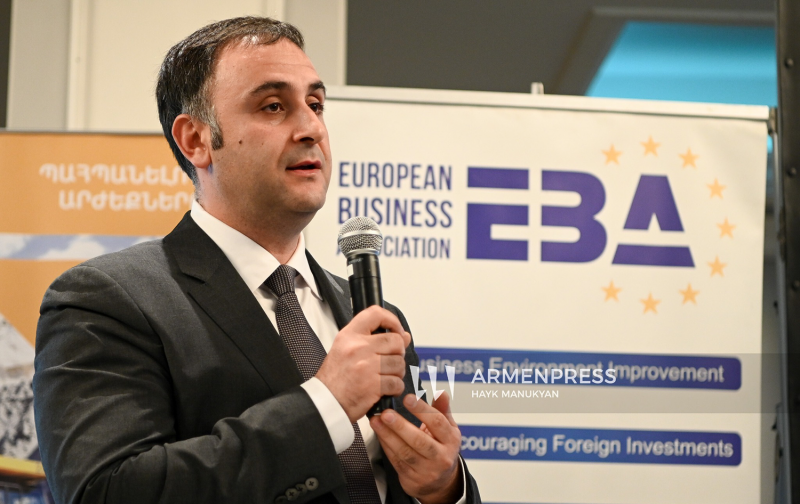The Republic of Armenia has carried out extensive work in the field of biodiversity conservation and holds considerable potential in this field. Ahead of COP 17, an international conference was held in Yerevan.
The International Conference on Sustainable Development was held in Yerevan, which serves as a unique bridge between COP 30 in Brazil and COP 17 in Armenia. As the international community prepares for the 2025 United Nations Climate Change Conference (COP 30), scheduled to take place in Belém, Brazil, from 10 to 21 November 2025, and Armenia prepares to host the 17th Conference of the Parties to the Convention on Biological Diversity (COP 17) in the autumn of 2026, this pivotal moment calls for a shared vision, coordinated action, and strengthened international cooperation.
Aram Meymaryan, Deputy Minister of Environment of the RA attended the event and emphasized in his opening remarks:
"A healthy environment is a fundamental human right. To build a sustainably developing and resilient nation and to ensure long-term progress, we must actively protect and improve our environment, as the quality of our products and services depends on it. For instance, when we produce agricultural goods—especially dairy products derived from pastures—we rely on conserving biodiversity to ensure food quality. We also stress the need for market diversification. Armenia is moving toward closer integration with the European Union, where high product standards and diversified markets play a vital role."
According to Aram Meymaryan, it is crucial to use such platforms to underscore the importance of environmental protection, the urgent need to combat the negative impacts of climate change, and the necessity of preventing land degradation and desertification.
“This is precisely where the Ministry of Environment of the RA must take action,” he stated. “However, we cannot succeed on our own. Achieving meaningful results requires close cooperation among government institutions, the private sector, scientific organizations, NGOs, and international partners. He further noted that Armenia’s economy relies heavily on loans, making responsible and well-structured lending essential for business development. In this context, environmentally conscious lending practices by private financial institutions can deliver tangible results. By integrating environmental considerations into financial decisions, these institutions can promote sustainable, long-term growth for investors and entrepreneurs. At the same time, such an approach allows Armenia to offer high-quality products in international markets that are increasingly selective about both product standards and production conditions.”
As the incoming president of COP 17 on biodiversity, Aram Meymaryan emphasized that Armenia must position itself as a leading and exemplary country in environmental protection. The United Nations and the European Union already support Armenia in this effort through numerous jointly implemented programmes. These initiatives offer both knowledge and practical pathways for transitioning to more effective, science-based solutions—helping to prevent land desertification and improve the management of water resources and forests.
Vassilis Maragos, Ambassador Extraordinary and Plenipotentiary and Head of the EU Delegation to Armenia, highlighted in his speech that hosting COP 17 in Armenia is a joint initiative, emphasizing the critical importance of cooperation in this area. He also noted that Armenia has made significant progress in biodiversity conservation and possesses considerable potential in this field.
“Forest conservation, effective water resource management, and the prevention of desertification are critically important topics, making biodiversity a key priority. This is also significant for the EU in the context of its cooperation with the Government of Armenia,” said Françoise Jacob, Resident Coordinator of the UN Office in Armenia. She added that important decisions will be made during COP 17, and Armenia will assume a two-year responsibility for implementing and monitoring these decisions.









